Bunny Lake Is Missing Blu-ray Movie
HomeBunny Lake Is Missing Blu-ray Movie 
Twilight Time | 1965 | 107 min | Not rated | Nov 11, 2014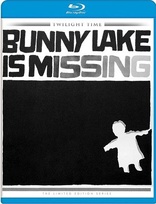
Movie rating
7.3 | / 10 |
Blu-ray rating
| Users | 0.0 | |
| Reviewer | 3.5 | |
| Overall | 3.5 |
Overview
Bunny Lake Is Missing (1965)
A woman reports that her young daughter is missing, but there seems to be no evidence that she ever existed.
Starring: Laurence Olivier, Carol Lynley, Keir Dullea, Martita Hunt, Anna MasseyDirector: Otto Preminger
| Psychological thriller | Uncertain |
| Thriller | Uncertain |
| Mystery | Uncertain |
Specifications
Video
Video codec: MPEG-4 AVC
Video resolution: 1080p
Aspect ratio: 2.35:1
Original aspect ratio: 2.35:1
Audio
English: DTS-HD Master Audio Mono (48kHz, 24-bit)
Music: DTS-HD Master Audio 2.0 (48kHz, 24-bit)
Subtitles
English SDH
Discs
50GB Blu-ray Disc
Single disc (1 BD)
Playback
Region A (B, C untested)
Review
Rating summary
| Movie | 3.5 | |
| Video | 4.5 | |
| Audio | 4.0 | |
| Extras | 2.0 | |
| Overall | 3.5 |
Bunny Lake Is Missing Blu-ray Movie Review
Missing or nonexistent?
Reviewed by Jeffrey Kauffman November 17, 2014Otto Preminger was a famous (perhaps more appropriately infamous) bully on set, though he picked his victims wisely, tending to dominate inexperienced performers and also aiming his tirades more generally against women than men. There is a litany of actors who have talked about Preminger’s take no prisoners approach toward directing, with some, like Jean Seberg (who goes into some detail in an extra on Breathless), insisting that Preminger’s tactics actually were detrimental to their acting. Lem Dobbs, in some interesting sidebars to his commentary on Bunny Lake is Missing, goes even further, suggesting that Preminger’s brusque, brutal attitude toward his actors actually resulted in, or at least contributed to, several deaths through the years, including Seberg herself, as well as Maggie McNamara and Dorothy Dandridge. That may be stretching things a bit, for while all three of these actresses did indeed commit suicide, they had all been beset with career difficulties that can’t be entirely ascribed to Preminger. Carol Lynley was evidently the main target of Preminger’s rage during Bunny Lake is Missing, though the actress may have been at least partially prepared for the ordeal, having already worked under Preminger in The Cardinal, a film where Preminger’s intimidations were evidently aimed mostly at Thomas Tryon (a rare case of a male enduring the director’s rants). One has to assume even Preminger would never have dared raise his voice to the two male icons appearing in Bunny Lake is Missing, Laurence Olivier and Noel Coward, but despite all this directorial Sturm und Drang, Lynley, who is front and center virtually nonstop throughout the film, delivers a rather compelling performance as a young (unmarried) mother working through one of the worst nightmares any parent can experience, the disappearance of her little girl, the titular Bunny Lake. Bunny Lake is Missing has had a rather bifurcated critical assessment through the years, with even Preminger himself seeming to dismiss the film as a somewhat bizarre trifle. But for much of the film, there’s a quasi-hallucinatory quality, aided and abetted by Preminger’s calmly gliding camera moves, that gives the film a really interesting, unsettling mood. If the actual “mystery” never really gels satisfyingly, the film is still stuffed to its veritable gills with fascinating performances, perhaps indicating that there was a method (a Method?) to Preminger’s madness.
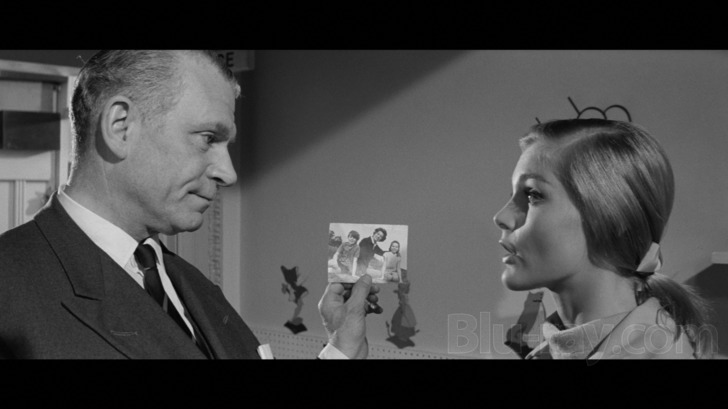
Bunny Lake is Missing traffics in quite a bit of ambiguity, to the point that “swinging” mid-sixties London ends up looking like a den of iniquity. The opening act of the film plays with a deliberate piece of subterfuge, leading the viewer to believe that Ann Lake (Carol Lynley) and Stephen Lake (Keir Dullea) are a couple. It’s only well into the film’s nightmare scenario of a vanished little tyke that a throwaway line reveals that the two are actually brother and sister, though a kind of creepily affectionate pair of siblings at that. Ann and the missing Bunny are new to London, having just arrived from the States and getting set up in their new lives. That includes getting Bunny into pre-school. Because she’s late to a meeting with the moving van, Ann leaves Bunny in a so-called “first day room,” alerting the school’s cook, who says teachers will be down in a few minutes and that the little girl will be fine until that time. It’s notable that (of course, given later developments) Bunny is never seen.
While the film starts to play with the idea that Ann is a neurotic who really doesn’t even have a child, it’s notable that for those paying attention, there’s really no question as to whether or not Bunny is real, or perhaps there’s less of a question than might initially seem to be the case. Still, the film nicely plays with this ambiguity once a kindly but no nonsense inspector named Newhouse (Laurence Olivier) gets involved and starts trying to figure where the little girl has gotten to, if in fact she exists in the first place.
If the mystery aspect of the film becomes increasingly unbelievable as the film progresses, that still doesn’t materially affect the really rather odd mood that suffuses the film, especially courtesy of a coterie of characters who can only be described as eccentric. There’s the weird elderly co-owner of the school named Ford (Martita Hunt, here at the real age she impersonated as Miss Havisham in David Lean’s Great Expectations way back in 1946), who lives in an attic like space where she is doing some kind of folklore children’s story work with an old tape recorded. (Speaking of stories, Dobbs makes a rather interesting point about Bunny’s connection to Alice in Wonderland, including Ford’s assertion that the case is getting “curiouser and curiouser”.) There’s also Wilson (Noël Coward), Ann’s new landlord who is a collector of African masks, seems to swing both ways, and reveals a rather odd penchant when the police come a-calling late in the film. Chief among the weirdos, though, is Stephen, a man who obviously has an unusually strong connection to his distraught sister.
Preminger made his career out of pushing various envelopes, but what’s rather curious (and/or curiouser) about Bunny Lake is Missing is how discursive some of its more provocative elements are handled. Wilson’s homosexuality (or, indeed, bisexuality) is rather liberally hinted at, but never really dealt with explicitly. This might be somewhat understandable, given the film’s vintage, but the fact is three years previously Preminger had dealt with homosexuality rather more straightforwardly in Advise and Consent. The quasi- incestuous relationship between Stephen and Ann is also depicted with enough force to create a few squirm worthy moments throughout the film, but it’s never really thrust front and center for the bulk of the film. Instead, Preminger seems content to merely hint, leaving things ambiguous at best. Ironically, the central ambiguity—does Bunny really exist?—is ultimately forsaken in a completely routine wind up that doesn’t just defeat the film’s title, but much of the bizarre ambience that has gone before.
Bunny Lake Is Missing Blu-ray Movie, Video Quality 
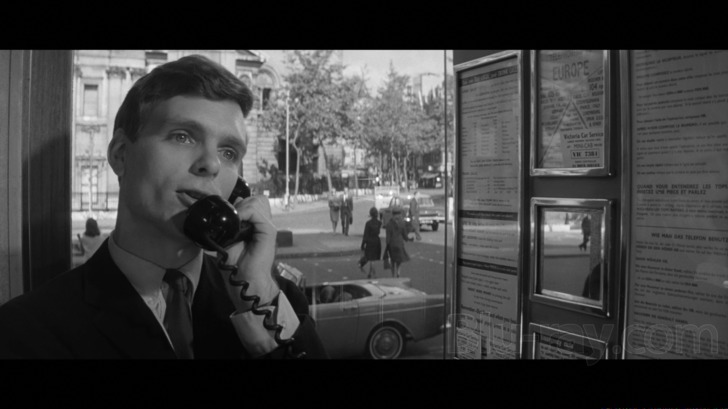
Bunny Lake is Missing is presented on Blu-ray with an AVC encoded 1080p transfer in 2.35:1. Sourced from elements in very good condition, this high definition presentation boasts nicely inky blacks and very nicely modulated gray scale. There's occasional relative softness on display in some of the outside location work around London, perhaps due to second unit conditions, but generally speaking, this is a sharp, clear and organic looking presentation. Contrast is very strong and consistent, and there is a natural looking grain field in evidence. There are no issues with over aggressive digital intrusion on the image harvest.
Bunny Lake Is Missing Blu-ray Movie, Audio Quality 
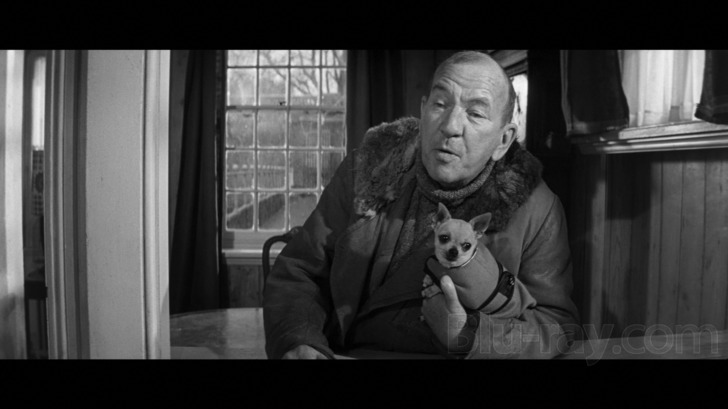
Bunny Lake is Missing's lossless DTS-HD Master Audio Mono mix capably supports the film's dialogue, London sound effects, and the interesting music score (which includes a Paul Glass underscore as well as some tunes by The Zombies). Fidelity is excellent and there are no problems with issues like hiss, dropouts or other damage.
Bunny Lake Is Missing Blu-ray Movie, Special Features and Extras 
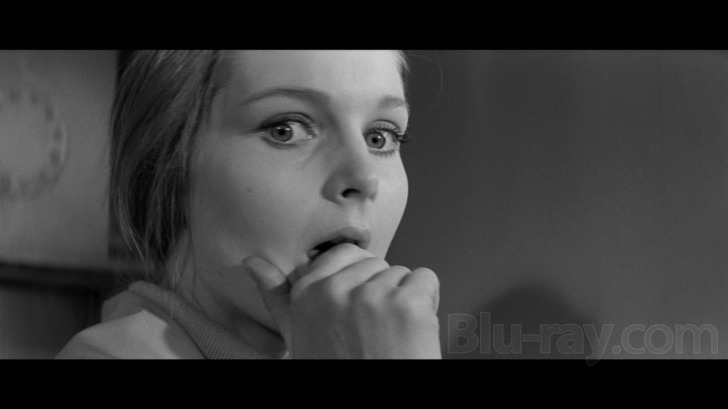
- Trailer: Otto (1080p; 3:25)
- Trailer: The Zombies (1080p; 2:22)
- Trailer: Bunny Lake is Missing (1080p; 2:54)
- Audio Commentary with Film Historian Lem Dobbs is hosted by Twilight Time's Nick Redman and Julie Kirgo. Dobbs offers some nice appreciations of the film while not shying away from some of its problems.
- Isolated Score Track is presented in DTS-HD Master Audio 2.0.
Bunny Lake Is Missing Blu-ray Movie, Overall Score and Recommendation 
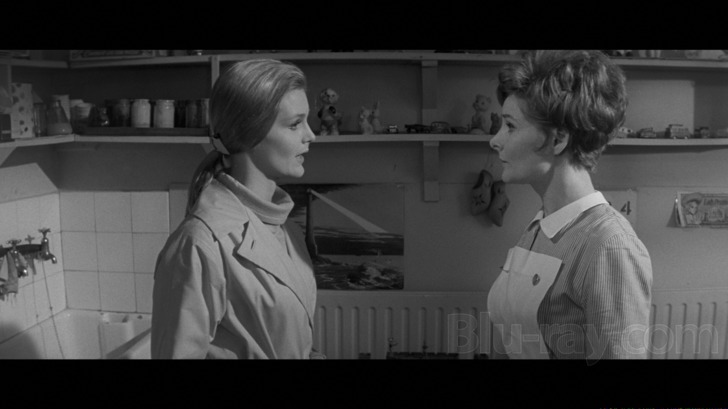
Bunny Lake is Missing benefits from Preminger's inimitable visual style, and it also is chock full of fascinating performances. For a good 2/3 of the film, even the mystery aspect is relatively engaging. If the film ultimately devolves into near Grand Guignol silliness toward the end, that's perhaps an acceptable price to pay for such an otherwise outré experience. Technical merits are very strong on this release, and Bunny Lake is Missing comes Recommended.
Similar titles
Similar titles you might also like

The Fallen Idol
1948

Mortal Thoughts
1991

The Iguana with the Tongue of Fire
L'iguana dalla lingua di fuoco
1971

Twisted Nerve
1968

Gaslight
A Strange Case of Murder / Angel Street / SD
1940

A Dragonfly for Each Corpse
Una libélula para cada muerto
1975

Peeping Tom 4K
1960

Creepy
Slipcover in Original Pressing
2016

Cure
キュア / Kyua
1997

Fear in the Night
Dynasty of Fear / Honeymoon of ... Fear
1972

The Vanishing
Spoorloos
1988

Mothers' Instinct
2024

Experiment in Terror
1962

Equus
1977

Dark River
2017

Narcopolis
2015

Whispers in the Dark
1992

Four Flies on Grey Velvet 4K
4 mosche di velluto grigio
1971

The Ones Below
2015

The Big Fix
Limited Edition to 3000
1978